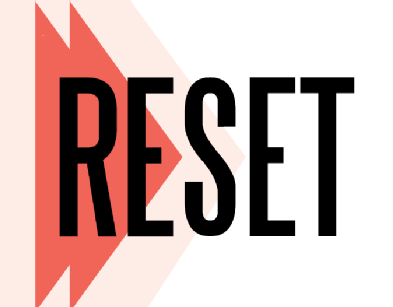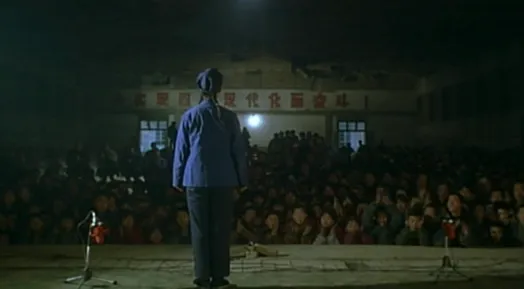'Reset' & 'Red Creative': Two presentations from Justin O'Connor
We're delighted to be joined this month by Justin O'Connor, Professor of Cultural Economy at the University of South Australia, for two in-person research events.
On Thursday February 24th at 4pm in FAB 2.43, Professor O'Connor will present 'Reset: Art and Culture in the Interregum' based on work that has emerged from the Adelaide-based Reset Arts and Culture collaboration, reflecting on the cultural sector's post-pandemic life.
On Friday February 25th at 3pm in FAB 5.01, Professor O'Connor will present 'Red Creative: China's Cultural Reforms'.
‘Reset: Art and Culture in the Interregnum’
Art and cultural policy are in crisis. This crisis is prior to, and bigger than, Covid-19: we are living through an epochal moment not some conjunctural interference.
Whilst some might look to re-instate ‘business as usual’ or celebrate the pandemic as accelerating the transition to ‘digital business models’, others agitate for new recognition of the vulnerable predicament of cultural workers and the value of culture in moments of crisis. This paper proposes that the qualities revealed by, and sometimes enabled through, the Covid pandemic are part of a broader shift away from global neoliberalism, which we can date from the late 1970s to the middle of the last decade.
The paper draws on the collective work of the Adelaide-based Reset Art and Culture program, operating over the course of 2021 and 2022. This identifies the current moment as an interregnum rather than transition, given the very real possibility of snapping back to a new and stronger form of neoliberalism. The paper addresses components of the interregnum and the potential new shape for cultural policy in its wake. Across the 1980s and 1990s art and cultural policy, which had long presented itself as opposed or at least different to ‘economy’, were gradually absorbed by it. This was not a simple process, nor can it be characterised as ‘economic reductionism’. Indeed, the 1990s began as a decade of culture – cultural economy, culture and development, and the ‘cultural turn’ – with cultural studies positioning culture as the key contemporary political site. By the time of the GFC this ‘cultural imaginary’ had run out of steam, however, even as it was exported across the global by agencies such as UNESCO, UNCTAD, World Bank, British Council, and the Goethe Institute. The post-2015 turn against globalisation was also one in which the promise of the creative class also turned sour. We suggest that, as a source of energy and, what Mark Fisher would call libido, the ‘creative imaginary’ - creative industries, creative cities, creative class etc. - is dead in the water. In the last decade there have been a number of breakthrough concepts or projects that have begun to change the narrative about what is possible for a new economic and social order. This has been enabled by responses to the GFC, to impending environmental catastrophe, to feminism and post-colonialism, to heterodox economics and slew of words – well-being, flourishing, commoning etc. - giving vent to aspirations to social reorganisation. Yet art and culture are almost absent from these debates, which routinely ignore them whilst infused with concepts previously articulated by them. Art is everywhere and nowhere. Yet the cultural sector too currently represents one of the last surviving outposts of global neoliberalism’s creative imaginary. More damagingly, they have lost the language in which to speak about the value of art and culture in ways that can connect with the new emerging agendas.
This paper is thus an attempt, sketchy, imperfect, unfished, to explore how we got into the present crisis and, more pressingly, how we can get out of it.
'Red Creative: China's Cultural Reforms'.
It is commonly believed that China, along with many other East Asian countries, adopted the ‘creative industries’ model in the first decade of the 21st century. This adoption was presented by both western and Chinese commentators as a sign of a new stage in the country’s modernisation – for the West, of China’s transition to some form of liberal democracy, for China, a new stage in ‘catch-up’ going back to 1978, 1949 and the 1920s. In this paper I will suggest that the ‘creative industry moment’ was short-lived, and proved not to be useful to China. ‘Creative industries’, invented in the UK in 1998, involved a policy ‘bundle’ that was more about ideology than actual industry. China’s cultural industry reforms of the 1990s were far more important, as they sought to re-organise the production and distribution of cultural ‘content’ rather than promote ‘creativity’. In this China was closer to South Korea than it was the UK, applying the resources of the ‘developmental state’ to the cultural industries.
I will also argue that this focus on cultural industries not only allowed a more effectively targeted policy but it also involved a recognition of culture’s social and political importance. In the West the ‘creativity discourse’ undermined the idea of culture and transformed it into an economic input. Whilst China also sought economic benefits, it has retained a sense of culture’s social importance which is also something distinctive about the China model. Finally, I will identify where China’s challenges are in this area, and look back to the reforms of the 1990s and how these might inspire new directions in the next decade.
Justin O’Connor is Professor of Cultural Economy, University of South Australia. He is also visiting Professor in the Department of Cultural Industries Management, Shanghai Jiaotong University. From 2012-2018 he was Professor of Communications and Cultural Economy at Monash University. Between 2012-18 he was part of the UNESCO ‘Expert Facility’, supporting the 2005 Convention on the Protection and Promotion of Cultural Diversity. Justin has produced Creative industry policy reports for the Australia Federal Government and the Tasmanian State Government, and for the Department of Foreign Affairs and Trade (DEFAT) on Creative Industries and Soft Power. Previously he helped set up Manchester’s Creative Industries Development Service (CIDS) and has advised cities in Europe, Russia, Korea and China. Under the UNESCO/EU Technical Assistance Programme he has worked with the Ministries of Culture in both Mauritius and Samoa. Justin is the author of the 2016 Platform Paper After the Creative Industries: Why we need a Cultural Economy; co-editor (with Kate Oakley) of the 2015 Routledge Companion to the Cultural Industries and Cultural Industries in Shanghai: Policy and Planning inside a Global City, (2018). He has just published Red Creative: Culture and Modernity in China (2020) and co-edited Re- Imagining Creative Cities in Asia (2020).


